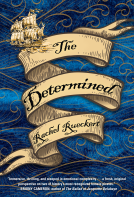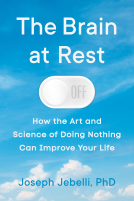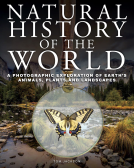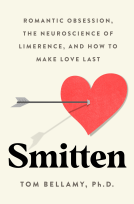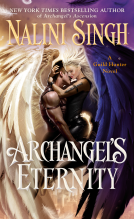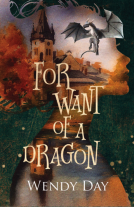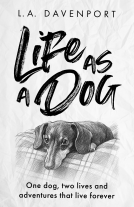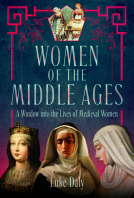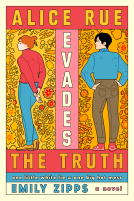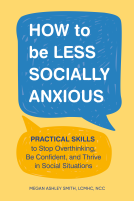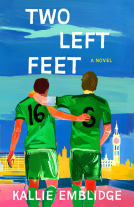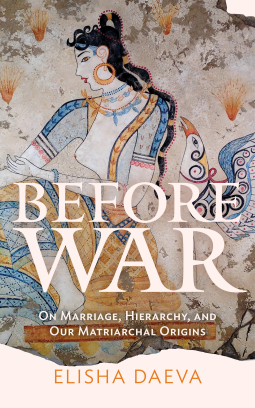
Before War
On Marriage, Hierarchy, and Our Matriarchal Origins
by Elisha Daeva
This title was previously available on NetGalley and is now archived.
Send NetGalley books directly to your Kindle or Kindle app
1
To read on a Kindle or Kindle app, please add kindle@netgalley.com as an approved email address to receive files in your Amazon account. Click here for step-by-step instructions.
2
Also find your Kindle email address within your Amazon account, and enter it here.
Pub Date May 25 2023 | Archive Date Aug 28 2023
Talking about this book? Use #BeforeWar #NetGalley. More hashtag tips!
Description
The book Before War will change how its readers look at the world — by exposing the female roots of Western civilization. It draws on the evidence from anthropology, archaeology, linguistics, primatology, and the shocking new genetics data, to tell the story of Western civilization.
For readers of Sapiens and The Dawn of Everything, this is about another way that our European ancestors lived, without violence, sexual shame, or social inequality. It’s the story of a story that was buried and re-discovered again and again, and is once again being told, thanks to the new science of genetics. It’s the story of the first rape, genocide and colonization in 3500 BCE, and of the peaceful, egalitarian people who lived before. It’s about the most controversial academic debate of all time, which has raged for 250 years. It’s a funny, sexy take on some heavy topics.
It’s not about blaming men. It’s about standing together against an institution that harms us all.
Are you interested in your Eurasian ancestors, in the truth about our ancient past, or in the origins of social inequality? Do you want practical solutions for how we can save the world, or how you can heal from harmful belief systems? It’s time for a paradigm shift!
Advance Praise
Readers' Favorite Book Review(s):
All my life, only three books have transformed my thinking as much as Before War. As someone who believed families have always been nuclear, I was shocked to learn that several cultures have entirely different practices. Elisha's ideal family, which borrows ideas from matrilineal cultures, feels much more natural, less destructive, and more stable than today's predominant patriarchal system. Many references, including publications from genius archaeologist Marija Gimbutas, support her message. Even as the book is thoroughly analytical and includes various academic fields, the author's voice shines through in clear, interactive language. Historical fans, culture enthusiasts, feminists, masculinists, and even Andrew Tate fans will find Before War extremely enlightening. No matter your belief about genders, Elisha's life-changing, mind-blowing, and deeply compelling book is bound to expand your worldview. Read it!"
Average rating from 12 members
Featured Reviews
 Reviewer 725763
Reviewer 725763
Using evidence from anthropology, archaeology, linguistics, primatology, and genetics, this book explores the matrilineal, egalitarian roots of civilization before the Indo-European expansion spread patriarchy throughout the world. In an entertaining and persuasive style, the author argues that in matrilineal societies, paternity was irrelevant, leading to less violence and repression, and more equal sharing of resources. In such societies, she suggests, both men and women enjoyed happier, less stressful lives.
The author draws from a variety of sources, some reliable (like "The Dawn of Everything" by David Graeber and David Wengrow) and some less so (like Wikipedia). Read it with a critical eye, but definitely read it.
Thanks, NetGalley, for the ARC I received. This is my honest and voluntary review.
 Reviewer 1211834
Reviewer 1211834
This book by Elisha Daeva is original and important . I found it a great and interesting read . The explanation of the decline and destruction of matrilineal society and the subsequent domination by the patrilineal people from the desertified areas rings true . War ,carnage ,domination of others , unequal burdens hoarding of scarce resources , reducing women and inheritance to tools of the conqueror . This is a state we still live with more or less . I am in awe of her dedication to the book and her research .. So many things make sense because of reading Before War .Thank you Elisha Daeva .
I thoroughly recommend this book to anyone with an open mind .
 Krista T, Bookseller
Krista T, Bookseller
Before War is a fascinatingly multidisciplinary exploration of the early origins of human society. Looking at the compelling evidence from archeology, linguistics, and genetics — blended with further hints found in primatology, oral histories, and mythology — author Elisha Daeva makes a convincing argument against the inevitability of violence and other correlates of the patriarchy that so many claim is our human birthright. Early on, Daeva explains that she left her postgrad studies in neuropsychology at UCLA due to the “bias and politics in academia” — allowing her to spend the next twenty years reading broadly and studying with alternative mentors — and while that frees her to speak uncomfortable truths that go against the orthodoxy, it also sees her quoting often from Wikipedia and using casual language that smacks a bit of amateurism. Still: I was intrigued and persuaded by the evidence that Daeva has assembled here and would love to see it shared and discussed widely.
 Librarian 186177
Librarian 186177
Very, very interesting book! The writing was engaging and also entertaining so it kept your interest from beginning to en.
Very unique premise and well-researched. Quite the interesting read!
A lot of information to process at once - I'll probably need to revisit bits and pieces here and there.
 Rosa S, Educator
Rosa S, Educator
This is a fascinating look at women's place in history. Social scientists and anthropologists interpret the scant evidence of history, since there are no survivors from various cultures. We have DNA samples, leftovers of writing and hospitality, worship, migration patterns, and settlements. A researcher's job is not just to read the evidence but to interpret it. Therefore, depending on the philosophy (and culture and religion) of the researcher, the findings can be diverse and exciting.
This volume interprets history through the lens of feminism and anti-patriarchy. Daeva present a well-documented trail of evidence, previous research, and current speculation. While I disagree with most of the author's conclusions, this book presents a wealth of research in anthropology, humanities, historical religious, and mythology.
Dive in if you dare - and see where she takes you. I'm the mom of three fine grown sons and a wonderful daughter. It's been clear from their first yelp that men and women are created differently and those differences show up from the time of birth. Whether our adult kids would agree with each other and Daeva on the evidence dissected and reworked, is not up for debate. The window you look out of determines your view of the street, no doubt about it.
 Shelby S, Librarian
Shelby S, Librarian
Although this book can be a bit dense at times, it is a fascinating and holistic read on human history. It brings together evidence from multiple academic disciplines to illustrate our "matrist" beginnings before patriarchy. And it shows how much of our history is left out in mainstream education. I highly recommend this title to anyone who is curious about our origins and pre-history.
How to describe Elisha Daeva?
That she is, not your average academic comes out strongly in the colloquial language she often uses. Where there is particular contempt for someone she doesn't like there is no hesitation in calling them an a***ole, for example.
This of course will make her a lot more approachable to non-academics. It also points to the freedom Daeva feels in not having to spare the tender sentiments of those who have the most power in deciding whose views shall be viewed as legit.
In short, Daeva seeks to rattle the cages of the accepted received opjnion, and to hell with the consequences, as she has nothing to lose!
The world of academia is indeed cliquey, with heresy not being tolerated. Politics and ego do indeed, all to often come before science, and Purveyors of unpopular opinions may not be threatened with the Inquisition these days, but to be ridiculed as an atavist or eccentric can work just as well.
This book supports the work of one of these ridiculed atavist eccentrics: Marija Gimbutas, who was originally lauded for her research into ancient matrilineal societies worshipping a goddess. Her findings were challenged for being biased until genetic research began to agree with jer: repeated Kurgan invasions did indeed change the world, and not necessarily for the better.
The book goes into quite painstaking detail on how and why this was the case. A warning for the unwary: this is quite a hefty tome, with a good deal of detail. Homework and further research my be required from the reader, whether or not the aim is to either prove or disprove Daeva's assertions, these being that on the whole, the rise of patrilineal societies and patriarchy are not good news. They come in the wake of trauma brought on by natural disasters such as famine, climate change and volcanic eruptions. Want breeds fear that there won't be enough to go round. Hierarchies begin. between haves and have-nots. Women become chattel to powerful men, and sex shamed from one generation to the next. And war brings genocides and massacres. This book supports the assertions of Daeva that Marx and Engels, That matrineal societies whereby their nature, far more egalitarian.
Another of Daeva's gurus is Riane Eisler, who also was influenced heavily by Gimbutas. Riane Eisler is particularly intrigued my Minoan culture, suspecting that this was an idyllic, peaceful world, until the eruption of Thera changed things, again for the worse.
In the case of the Minoans, it still remaims true that there are no written recods of what they truly believed, though if the Linear A alphabet does get decoded, there might be yet another 'she was right after all' moment.
This is a timely book, coming as it does in the wake of the destructive effects of mysogynist influencers and the murderous hate they foment, such as Andrew Tate or online incel groups. Women have more equality currently, yet Gilead still, always threatens to return, as it did rapidly recently in Afghanistan.
It is worth emphasising that this book is *not* anti-male. Its message is rather that there may be better ways to live than within the social structures we do at the moment. There might be things Daeva has generalised about, but that will involve doing a little homework, to check that out.
As a species, we don't really see ourselves too clearly from a long-term historical perspective, and therefore to get a sense of what is likely to cause is to take a wrong - and oppressive - direction. This book may be one of those that will help us begin to do that - if we can in time.
Readers who liked this book also liked:
Megan Ashley Smith, LCMHC, NCC
Health, Mind & Body, Nonfiction (Adult), Self-Help

